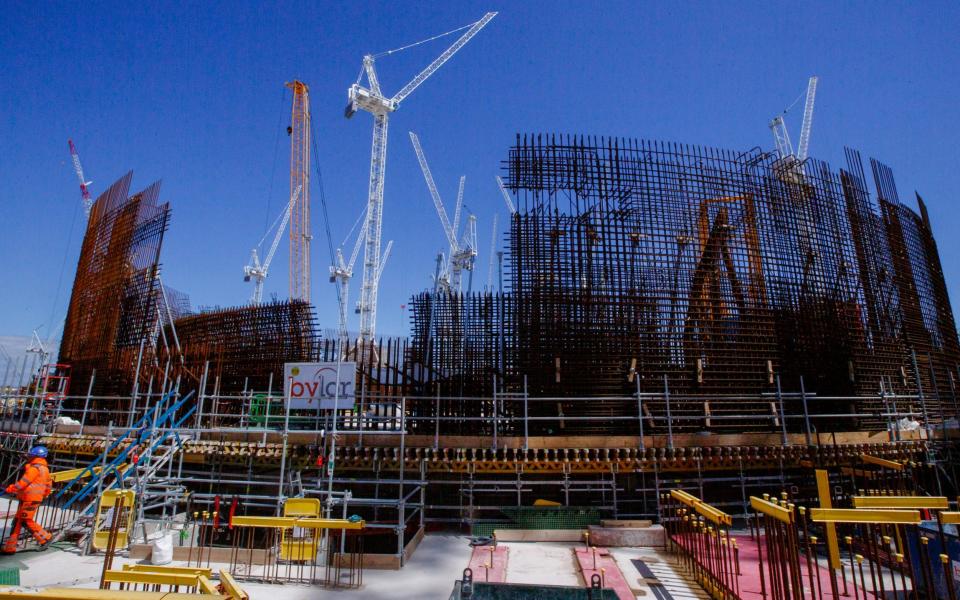Britain's nuclear future in doubt after Hitachi pulls the plug

One week after Japan gave British industry a morale boost by agreeing a £1.5bn trade deal, one of its biggest conglomerates – Hitachi – has thrown our energy policy into disarray.
The £26.4bn business has finally walked away from plans to build a nuclear power station in Wylfa, Anglesey, blaming the "severe" investment environment created by Covid-19.
The decision to throw in the towel – assuming it's not just a hard-ball tactic – comes 20 months after it suspended the project amid rising costs.
It raises further doubts over the future of nuclear power in the UK, and exactly how the government plans to meet the country's power demands while also hitting legally binding targets to reach net zero carbon emissions.
Wylfa is one of eight sites earmarked for new nuclear power stations to replace the UK's current ageing fleet, which provide about 20pc of the nation's electricity but almost all of which are set to come offline within the decade.
Development of those sites is looking unlikely, however, given that both private companies and governments are wary of the huge costs of nuclear and long payback time.
Toshiba abandoned plans for a new station in Moorside, Cumbria, amid financial troubles in 2018, and a potential rescue by the South Korean group Kepco went nowhere.
It leaves only EDF and its Chinese state partner CGN now developing new nuclear power plants in the UK – Hinkley Point C in Somerset and, they hope, Sizewell C in Suffolk.
CGN's involvement comes with huge political baggage given rising concerns over China, and the government may have to try to take an equity stake in Sizewell C to reduce Chinese influence, the BBC reported on Wednesday.
Sizewell C is unlikely to get off the ground without some form of UK government backing. EDF and others in the industry have backed a controversial proposed finance model that sees consumers paying upfront during construction, bringing down the cost of capital.
Responding to Hitachi's announcement, the Government stressed that nuclear will play a "key role" in the UK's energy mix and said it had offered Hitachi unprecedented support including taking a one-third equity stake.

Yet the Government's failure so far to commit to the new financing model – known as regulated asset base – since a consultation launched more than a year ago raises questions over its enthusiasm for large power plants.
It appears to be taking an increasingly favorable view on emerging technologies such as small-modular nuclear reactors being developed, though a long way off, by Rolls-Royce and others. Either way, its long-term energy strategy remains mysterious as it has still not published a delayed white paper.
Decisions on nuclear take place against significant gains in wind and solar power, leading environmental activists such as Greenpeace to declare that Hitachi's decision is final confirmation that "Britain's future is renewable."
Yet many experts say that wind and solar cannot pick up all of the slack, and more gas-fired power is likely to be needed if nuclear is not replaced.
Gas-fired power means more carbon emissions, a blow for a government struggling to reach its net zero carbon goals.
Some are pinning their hopes on carbon capture systems to make gas-fired power plants more carbon-friendly, but these are also a very long way off at scale, and also very costly.
There are no easy answers amid a rapidly changing energy system and huge pressure to slash carbon emissions without lowering the power supply.
Nonetheless, Hitachi's decision is a further sign that investors won't sit around for too long waiting for the government to work out how it wants to get there.

 Yahoo Finance
Yahoo Finance 